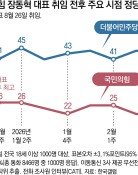Samsung develops battery technology to drive 800 km per charge
Samsung develops battery technology to drive 800 km per charge
Posted March. 11, 2020 07:53,
Updated March. 11, 2020 07:53
The Samsung Advanced Institute of Technology (SAIT) has successfully developed seed technology to extend the cycle life and safety of the all-solid-state battery while reducing its size by half.
The SAIT announced on Tuesday that it published a study on the all-solid-state battery in Nature Energy, which enables an electric vehicle to travel up to 800 kilometers on a single charge and features a cycle life of over 1,000 charges. Nature Energy is one of the top 10 among over 12,000 academic journals in the world.
The electrolyte between the anode and cathode of the all-solid-state battery is solid, not the usual liquid. Compared to the lithium-ion battery produced most manufacturers, it can lead to larger capacities and better safety. However, the lithium metal anode that is often used in the all-solid-state battery is prone to trigger the growth of dendrites, which can damage the battery separator and reduce a battery’s lifespan and safety. The SAIT in collaboration with the Samsung R&D Institute Japan has found a solution to the technical conundrum by using a silver-carbon composite layer as the anode for the first time.
“The product of this study could be a seed technology to drastically extend the driving range of electric vehicles,” said Im Dong-min, researcher at the SAIT’s Next Generation Battery Lab and the leader of the project. “We will continue to develop and refine all-solid-state battery materials and manufacturing technologies to overcome the limitations of the next-generation battery.”
Dong-Il Seo dong@donga.com




![[단독]폴란드, 韓 해군 최초 잠수함 ‘장보고함’ 무상 양도 안받기로](https://dimg.donga.com/c/138/175/90/1/wps/NEWS/IMAGE/2026/02/27/133437397.1.jpg)

![“20대엔 28개, 80대엔 15개… 노년기 치아상실 피하려면”[베스트 닥터의 베스트 건강법]](https://dimg.donga.com/c/138/175/90/1/wps/NEWS/IMAGE/2026/02/27/133437590.4.jpg)
